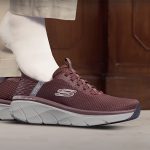According to the 14th annual Fitness Trends survey from the American College of Sports Medicine (ACSM), wearable tech for the second straight time was rated the top trend in fitness in the coming year.
More than 3,000 health and fitness pros surveyed by the American College of Sports Medicine (ACSM) were surveyed as part of ACSM’s annual fitness trend forecast in the article “Worldwide Survey of Fitness Trends for 2020” published in the November/December issue of ACSM’s Health & Fitness Journal.
“Wearable tech has become ingrained in today’s culture, and the industry shows no signs of slowing down,” said ACSM Past President Walter R. Thompson, Ph.D., FACSM, the lead author of the survey and associate dean in the College of Education and Human Development at Georgia State University in Atlanta. “Tech advances have made it easier than ever for users to collect important health metrics and work with fitness professionals and health care providers to improve exercise efficiency, develop healthy lifestyles, manage chronic diseases and, ultimately, increase quality of life.”
Now in its 14th year, ACSM’s annual survey helps the health and fitness industry make critical programming and business decisions. This year’s survey provided 38 potential trends to choose from, including possible new trends like lifestyle medicine. Other trends were more specifically defined. Notable trends include the continued popularity of high-intensity interval training (HIIT) and group training (both in the top three for three years in a row); an increased interest in Exercise is Medicine® and fitness programs for older adults; and a growing emphasis on health and wellness programs.
New this year, ACSM published a separate article, “Regional Comparisons: The Worldwide Survey of Fitness Trends,” comparing the top 20 fitness trends in North America, China, Europe and South America. The article looks at specific data to provide a more global understanding of the trends in different regions around the world. Partners in Europe, South America and China collected data by replicating ACSM’s Worldwide Survey of Fitness Trends methodology.
“Through the regional comparison we hope to enhance the scope, reach and relevance of the ACSM fitness trends survey to truly make it an international collaboration,” said Vanessa M. Kercher, Ph.D., M.Ed., co-author of the regional comparison article and a clinical assistant professor in the school of public health at Indiana University. “We plan to continue developing our international partnerships with the goal of improving and expanding the implementation and methodology of the ACSM fitness trends survey. By doing so, we aim to identify fitness trends specific to different international regions so we can explore and communicate regional similarities and differences to readers.”
According to the “Worldwide Survey of Fitness Trends for 2020,” the top 10 fitness trends are:
- Wearable technology: Includes fitness trackers, smart health watches, heart rate monitors and GPS tracking devices.
- High-Intensity Interval Training (HIIT): HIIT involves short bursts of activity followed by a short period of rest or recovery. Despite concerns expressed by some fitness professionals, these 30-minute or less sessions continue to be a popular form of exercise around the world.
- Group training: Group exercise instructors teach, lead and motivate individuals through intentionally designed, larger, in-person group movement classes of more than five participants. Group programs are designed to be motivational and effective for people at different fitness levels, with instructors using leadership techniques that help individuals achieve fitness goals.
- Training with free weights: Instructors focus on teaching proper form for exercises using barbells, kettlebells, dumbbells and/or medicine balls. Resistance progressively increases as correct form is accomplished. Training with free weights debuts at no. 4 in 2020.
- Personal Training: The popularity of one-on-one training continues to increase as it becomes more accessible online, in clubs, at home and in worksite fitness facilities. Personal training includes fitness testing and goal setting with the trainer working one on one with a client to prescribe workouts specific to individual needs and goals.
- Exercise is Medicine®: This global health initiative by ACSM encourages health care providers to include physical activity assessment and associated referrals to certified fitness professionals in the community as part of every patient visit.
- Bodyweight Training: Bodyweight training uses minimal equipment, making it more affordable. Not limited to just push-ups and pull-ups, this trend allows people to get “back to the basics” with fitness.
- Fitness Programs for Older Adults: As Baby Boomers age into retirement, many health and fitness professionals are taking the time to create age-appropriate fitness programs to keep older adults healthy and active.
- Health / Wellness Coaching: This growing trend integrates behavioral science into health promotion and lifestyle medicine programs. A one-one-one and small group approach provides support, goal setting and encouragement.
- Employing Certified Fitness Professionals: Hiring health/fitness professionals certified through programs accredited by the NCCA is more important than ever. ACSM is one of the largest and most prestigious fitness-certification organizations in the world.
The full list of top 20 trends is available in the article “Worldwide Survey of Fitness Trends for 2020.” More details and resources on the top 10 fitness trends are available on online.
The American College of Sports Medicine is the largest sports medicine and exercise science organization in the world.















